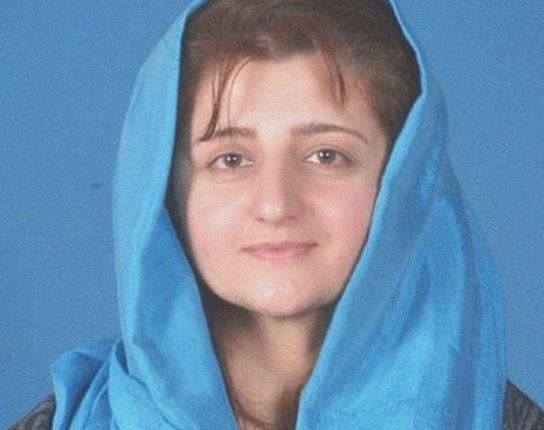Pakistan commemorating the anniversary of its interception of an Indian jet amidst a notable easing of tensions between the long-standing adversaries. On Tuesday, 27th Feb 2024 Pakistan is observing the fifth anniversary of the incident when it downed an Indian aircraft and apprehended its pilot. On February 27, 2019, the Pakistan Air Force (PAF) successfully intercepted an Indian MiG-21 aircraft, leading to the capture of Wing Commander Abhinandan Varthaman after the aircraft crashed in Pakistan-administered Jammu and Kashmir.
The subsequent day, Islamabad announced the release of the pilot and handed back to the India as a goodwill gesture, a move praised by the international community. Despite Pakistan’s assertion that it also downed another Indian fighter jet, which crashed in Indian-administered Jammu and Kashmir, this claim was rejected by New Delhi. Celebrations marking this event took place following the agreement to a ceasefire along the disputed Kashmir border, reached after discussions between senior military officials of the two nuclear-armed South Asian neighbors.
The central ceremony occurred at the Air Headquarters in Islamabad, where PAF Chief Air Marshal Mujahid Anwar Khan reiterated the air force’s commitment to “defend the motherland against all threats.” A fly-past honored the pilots involved in the operation, named “Swift Retort,” as reported by state-run Pakistan Television. Pakistan’s actions in February 2019 were prompted by an intrusion of Indian jets targeting an alleged militant training center in Balakot, northwest Pakistan. New Delhi’s claim of eliminating “300 terrorists” in the strike was refuted by Islamabad and never independently verified.
International media has refuted Indian assertions regarding the Balakot airstrike.
On February 14, tensions between Pakistan and India escalated significantly following a suicide bombing carried out by a young man from Indian occupied Kashmir (IoK), targeting an Indian military convoy and resulting in the tragic loss of at least 44 soldiers. India promptly attributed blame to Pakistan for the attack. Despite the former Prime Minister Imran Khan’s offer of full cooperation in the investigation, India declined the offer and instead propagated a narrative of war fervor.
Subsequently, on February 26, the Indian Air Force breached Pakistani airspace. This action was denounced by Pakistan’s highest civilian and military authorities as unwarranted aggression, with a decision made to respond at an opportune moment and location.
On February 27, Pakistan announced the downing of two Indian fighter jets attempting to violate its airspace, along with the capture of an Indian pilot. Following this, on February 28, the Pakistani Foreign Office acknowledged receipt of a dossier concerning the Pulwama attack from the Indian government. Deliberations ensued regarding the treatment of the captured Indian pilot, Abhinandan, either as a prisoner of war (POW) or under relevant international conventions.
Later that evening, the former Prime Minister Imran Khan addressed a joint session of parliament, announcing Pakistan’s decision to release the captured pilot as a goodwill gesture aimed at de-escalating tensions. On March 1, Pakistan, in a gesture of goodwill, handed over the captured Indian Air Force Wing Commander Abhinandan Varthaman to Indian authorities.
“Resolving the Unresolved: Charting New Trajectories for Kashmir Peace”
Kashmir is a region held partly by India and Pakistan, both claiming it in its entirety. Additionally, a small portion of Kashmir is under Chinese control. Since the partition in 1947, India and Pakistan have engaged in three wars, two of which were specifically over Kashmir, occurring in 1948, 1965, and 1971. Some Kashmiri groups in Jammu and Kashmir have been engaged in a struggle against Indian governance, aiming for either independence or integration with Pakistan. According to numerous human rights organizations, the conflict in the region has resulted in the reported deaths of thousands of individuals since 1989. On August 5, 2019, India revoked the autonomous status of Jammu and Kashmir, dividing it into two centrally governed territories, leading to renewed tensions in the already volatile region.
Pakistan’s decision on February 27, 2019, to return the captured Indian pilot was regarded as a demonstration of responsible behavior in the face of what was viewed as India’s provocative military actions. Pakistan has consistently advocated for peace and remains open to resolving all outstanding issues through dialogue. However, the responsibility for creating a conducive environment for further progress lies with India. India is urged to take necessary measures to address the longstanding demand of the Kashmiri people for self-determination, as outlined in United Nations Security Council resolutions.
THE DAILY COUNTRY NEWS IS ONE OF THE PAKISTAN'S LARGEST ENGLISH-LANGUAGE NEWSPAPER. COUNTRY NEWS IS REGULARLY SCHEDULED PUBLICATION CONTAINING NATIONAL AND INTERNATIONAL NEWS, HEALTH NEWS, ARTICLES,BLOGS, INFOTAINMENT, ADVERTISEMENT AND MUCH MORE.
Prev Post


